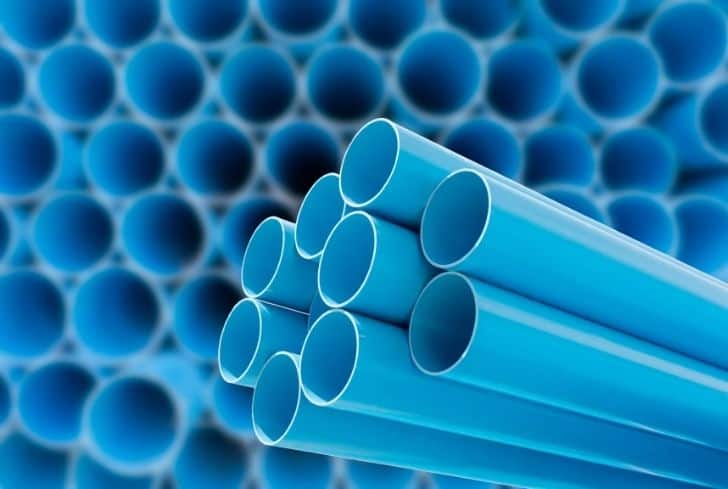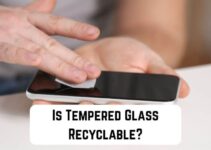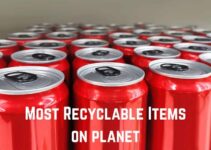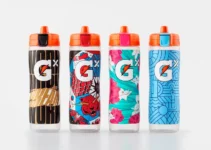No matter what it is used for, we all will agree that Polyvinyl chloride, popularly known as PVC is an amazing product. Whether used for window frames, cables, wiring, water pipes, ceilings, packaging bags, raincoats, or whatever, the PVC does a good job of delivering quality.
This is why it is a favorite raw material for products used in several industries and fields, ranging from housing to healthcare, civil construction, automobile, electronics, and much more.
There are several benefits attached to using PVC:
- It is highly economical as it enables one to save a great deal, especially compared to the closest competing materials.
- It is also quite strong and can withstand wear and tear. Thus, it lasts quite a long.
- It contributes to the reduction of greenhouse, carbon-based gas emissions.
- Above all, as we have seen, it is versatile and can be useful in several places.
However, we must know what to do with the PVC after we are done using it for the purpose for which we acquired it. Should we dump it? Is PVC pipe recyclable? Since the PVC is largely plastic, you may also worry about its impact on the environment.
Does it pose any form of danger to us or our environment? These are some of the questions that usually bother us when we are faced with this issue. However, you are not to worry about these any longer. Here, we have provided thorough answers to these questions and more.
Can You Recycle PVC Pipes?
It is a well-known fact that PVC is a durable product, which usually contributes to the strength and long-lasting nature of finished appliances made with PVC. However, at some point, the PVC may stop serving the need for which you got it in the first place.
Then, you start to consider what to do to the PVC that is no longer needed. You start to think of means to put it to a new user or even to discard it. One of the many options also includes recycling it. But, you may wonder, can you recycle PVC pipe?
We have brought you all the information you need regarding PVC recycling.
The good news is that you can recycle your PVC pipes. The fact that they are plastic products makes them highly recyclable. Thus, you don’t have to entertain any worries as to whether your PVC is recyclable or not.
It very much can be recycled. However, we have to note that there are different methods of getting your PVC recycled. You must know this because the different methods have different impacts on the environment.
Generally, there are two major ways to recycle PVC industrially. They include mechanical recycling and feedstock recycling.
In mechanical recycling, the PVC pipes, which are now essentially waste material, are ground into smaller forms. The next phase is for the crushed materials to be melted into mouldable products, after which they are then remodeled into actual products. These products can include other plastic products or even new PVCs.
The process of feedstock recycling is quite similar. The waste PVC pipes pass through several chemical processes, in which the chemical components found in them are extracted. These components typically include calcium chloride, amongst others. These are then used as raw materials for other manufacturing purposes or even as a component material for new PVCs.
Mechanical recycling is generally considered safer, as it does not bring about the breakdown of the product into chemicals in their basic form. So we just have the PVC product being turned into another product without the need for exposure to chemicals.
Can I Put PVC Pipe In My Recycling Bin?
If you sense that you may longer need your PVC pipe, you may consider potential options of doing away with it. For one, you might want to consider disposing of it. However, before you do that, you must be aware of the best method to go about it. This is because improper disposal may be risky to your well-being and that of the surrounding environment.
That said, the most commonplace to dump your PVC when no longer in use is the recycle bin. However, is it advisable to do so?
The fact you should note is that it is not advisable to put your PVC pipe in a recycling bin. This is because of the nature of PVC pipes. Most PVC pipes you find around remain quite bristle and a bit fragile, depending on the environment you put them in.
Thus, if you put them in a recycling bin, they can be dangerous. This is because they are not made to be lumped up with other materials in a disorganized fashion, as you will find in a recycling bin.
Since they contain materials that are not always healthy for the immediate environment, dumping them in the recycling bin can open you and the environment around you to several hazards. Moreover, it becomes even more important to avoid dumping them in the recycling bin bearing the fact that they are already old and, thus, mostly weak.
If you are advised not to put them in the recycling bin, you may wonder what other options you have. We will reveal exactly just that.
Rather than dump your PVC in a recycle bin alongside other materials, we highly recommend that you get another bin or trash can to deposit the used PVC pipes. This bin should preferably be one that you don’t use to store other waste products. Instead, it should be dedicated to storing only the PVC.
This has several advantages. For one, it makes it easier for the waste management body to sort the PVC out for potential recycling.
Is PVC Pipe Toxic?
If you are considering making use of PVC-based products for purposes such as housing construction, amongst others, you might want to know the hazards that come with dealing with such a product. On the other hand, you may already use PVC and desire to know how many precautions you should take to prevent any hazards.
For instance, you may want to know if PVC pipe is toxic.
The truth is that PVC pipe is toxic. In fact, you can say that the PVC pipe is highly toxic. Experts have rated the PVC pipe as one of the plastic products with the highest levels of toxicity.
The PVC pipe has also been described by the World Health Organization (WHO) as a product with carcinogenic properties that can lead to cancers of various forms. This is because they contain a particular component known as phthalates.
Phthalates have been known for being major contributors to other health risks, including reduced fertility, development of asthma, numerous forms of developmental disorders, and increased risks of developing allergies.
However, PVC pipes are not only harmful while in use. Even after use, they still contain potent chemical components that can wreak harm on both living and non-living matter in the environment.
For instance, when you are done using PVC pipe, one option is for you to burn it. However, it has been discovered that this only leads to the release of all the harmful toxins into the atmosphere, causing severe air pollution and exposing people to several hazards.
Then, even though burying the PVC pipes appears to be a safer option, it also comes with many risks. First, PVC pipes have been known to contaminate the soil, and then this contamination finds its way into animals and then humans.
Are PVC Pipes Safe for Drinking Water?
Knowing the characteristics of PVC pipes and the potential health risks they pose, you might be curious about knowing if you can use them for such things as drinking water. PVC pipes are used as pipes to connect to the water utility service to move water into the house. However, are they advisable for use? Are they safe? For these questions and more, we have got you covered.
It has been noted that PVC pipes are generally safe if they are used as channels to transport water into the house. In fact, PVC has been said to be one of the best materials for plumbing you can find around. This is mainly because PVC is made up; it has a low probability of rusting or corroding over a great deal of time.
Thus, you do not need to worry about replacing it unless it starts to leak or gets damaged. This greatly demonstrates the durability feature of the PVC pipe. The only downside that PVC pipes have is that they perform poorly if they are used to transport hot water.
However, when it comes to moving drinking water into the house, you should not consider PVC as an option. This is not necessarily because of the toxic features or nature of the PVC but because of how it behaves under high temperatures.
When PVC gets exposed to temperature or aggravated lighting, it starts to degrade gradually. This degradation can lead to the leaching of the PVC, which may eventually release harmful chemicals into the water, making it highly unsafe for drinking.
Essentially, if you want to use PVC pipes for anything water-related, you should mainly consider them for vent stacks, sink and toilet drain lines, water supply lines that run into the house, amongst others.
5 Super Easy Ways to Reuse Old PVC Pipes
If you are done using your old PVC pipes, there are several purposes to which you can put them, rather than incinerating or burying them.
1. Recycling
One of the very best options is to put the old pipes out for recycling. As we have mentioned, you should not keep the old PVC pipes with other garbage. Thus, you can easily bring them out during recycling campaigns.
2. Donation
Several organizations repurpose products like PVC pipes for charitable projects, such as building homes for the homeless. You can do a lot of good by donating the PVC pipes to them.
3. Repurposing
Do you know you can repurpose your PVC pipes for other interesting purposes? These include projects especially around the home garden, such as:
4. A Greenhouse
One of those “potentials” your PVC has is that it can be turned into a greenhouse. Essentially you need old PVC pipes, along with a net and a few other materials. Everything you will be needing should typically not cost more than a few tens of dollars.
5. A Pipe Sprinkler
Well, you can further turn your garden around by adding a pipe sprinkler system, all from your PVC pipe. Essentially, you will have an “irrigation system” for your garden making use of the PVC pipes you would have otherwise disposed of. This way, you get to reduce the amount of physical exertion involved with having to water your garden.
Conclusion
PVC pipes have a lot of amazing properties ranging from versatility to affordability and durability. This makes them very popular for many uses. However, they also have their downsides.
After use, they can pose a lot of danger to people and the environment. Nevertheless, if you can put them to proper uses such as recycling, repurposing, and donating them.
References:
https://www.mountainview.gov/depts/pw/recycling/garbage/recyclable.asp#!rc-cpage=223983
https://library.austintexas.libguides.com/recycling#!rc-cpage=44920






